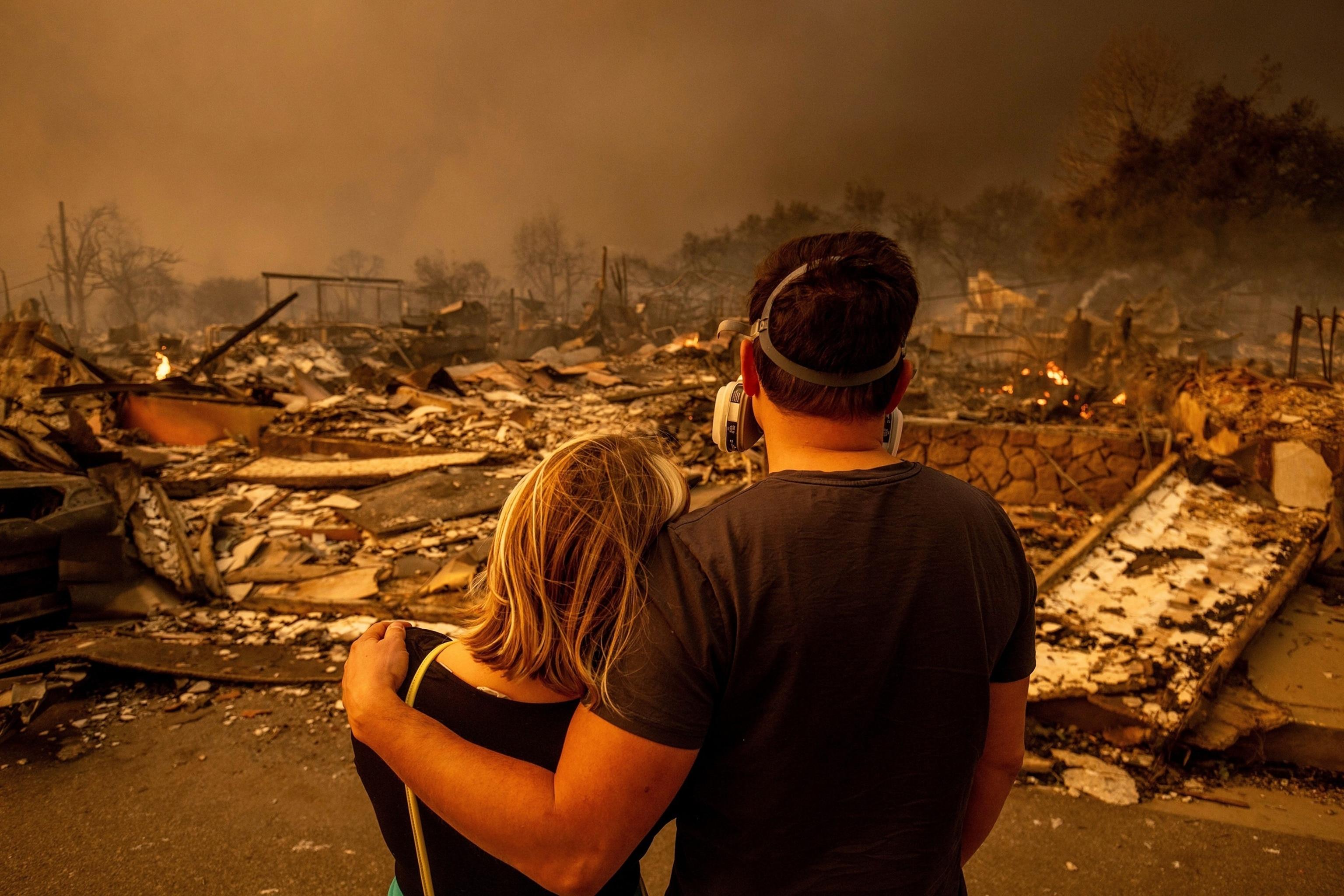In the flickering aftermath of California’s relentless wildfires, the landscape of Los Angeles transforms from vibrant urban tapestry to ashen memory. These before-and-after images reveal more than charred terrain; they capture the fragile intersection between human civilization and nature’s destructive potential, telling a story of resilience, loss, and the ever-changing face of a city perpetually balanced on the edge of environmental uncertainty. Devastating images reveal the stark transformation of Southern California’s landscape, capturing the raw power and destructive nature of recent wildfire seasons. Familiar landmarks and cherished natural spaces have been systematically altered, leaving behind haunting visual testimonies of environmental change.
Griffith Park, a historic urban wilderness, shows scorch marks extending across its rugged terrain. Charred trees stand like silent sentinels, their blackened branches reaching toward skies once filled with lush greenery. The park’s iconic observatory, miraculously spared, now overlooks a dramatically altered ecosystem.
Topanga State Park presents another compelling narrative of destruction and resilience. Sweeping photographs document hillsides previously covered in dense chaparral, now reduced to ashen moonscapes. Rock formations emerge from blackened ground, revealing geological structures previously hidden beneath vegetation.
Malibu’s coastline, renowned for its stunning landscapes, bears significant visual evidence of recent fire events. Luxury homes perched on precipitous cliffs show stark contrasts between pristine architecture and surrounding scorched earth. Coastal vegetation has been stripped away, exposing raw terrain vulnerable to potential erosion.
Santa Monica Mountains National Recreation Area demonstrates profound ecological transformation. Images showcase areas where vibrant wildlife corridors once thrived, now replaced by monochromatic landscapes of gray and black. Burned vegetation creates intricate patterns resembling abstract art, revealing nature’s complex destruction and potential regeneration.
Wildfire impacts extend beyond visual destruction. These photographs document environmental shifts that fundamentally alter regional ecosystems. Native plant species face significant challenges in recovery, while wildlife populations experience dramatic disruptions to traditional habitats.
Digital archives capturing these transformations serve crucial documentation purposes. They provide scientific researchers, environmental advocates, and policymakers concrete visual evidence of climate change’s tangible impacts. Each image tells a story of vulnerability, resilience, and potential regeneration.
Professional photographers and citizen documentarians alike contribute to this critical visual record. High-resolution images capture microscopic details and sweeping panoramic views, offering multifaceted perspectives on environmental trauma and potential recovery.
The visual narrative emerging from these before-and-after photographs transcends mere documentation. They represent powerful environmental storytelling, communicating complex ecological processes through accessible, emotionally resonant imagery. Each frame becomes a testament to California’s ongoing environmental challenges and potential for renewal.
As landscape recovery continues, these photographic archives will serve as critical historical documents, tracking transformative moments in Southern California’s environmental history.
